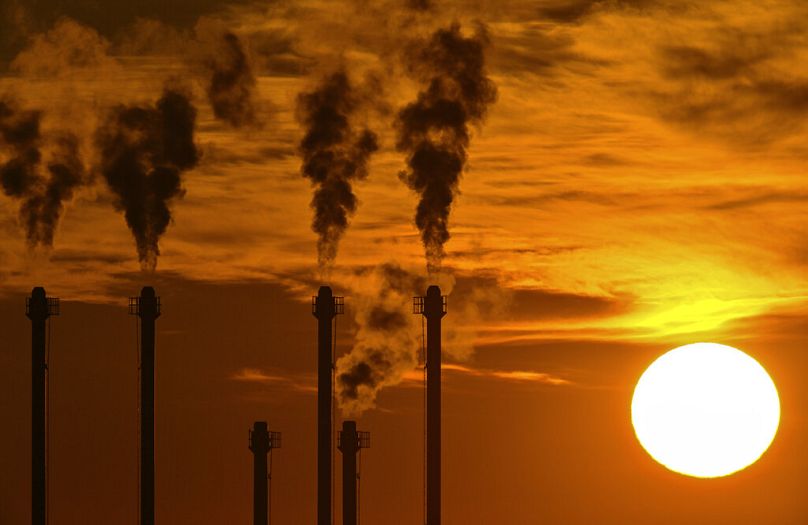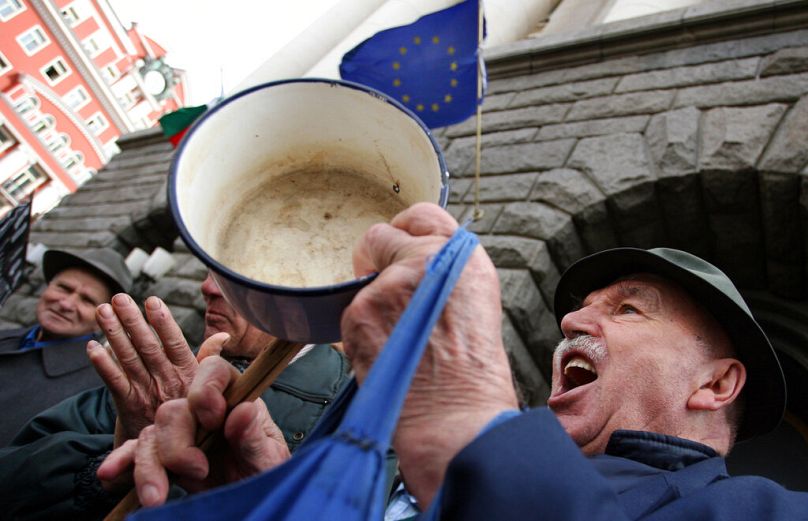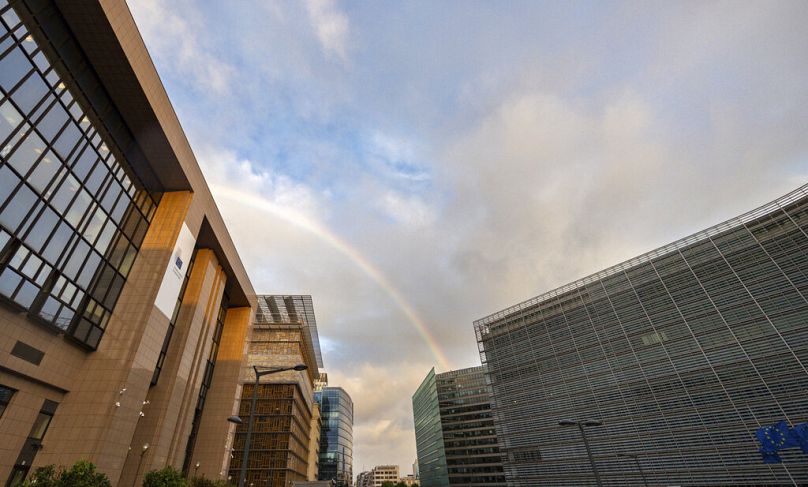VIEW | The pursuit of growth at all costs has created a global economic system that is fragile and vulnerable to shocks, and this needs to change, a group of European Parliament Members (MEPs) write.
Next week, more than four thousand people will participate onsite and online in the Beyond Growth 2023 Conference, a cross-political initiative taking place at the European Parliament in Brussels.
We, Members of the European Parliament (MEPs) from five different political groups and non-attached, are organising together alongside more than 60 partner organisations.
With this three-day conference gathering high-level speakers from EU policy-making, academia, trade unions, businesses and civil society organisations, our aim is to challenge conventional policy-making in the EU.
We also want to redefine societal goals across the board, moving away from the harmful focus on economic growth as the sole basis of our development model.
The existing model of growth at all costs has reached its limits
We believe that the current economic model, based on endless growth, has reached its limits.
Firstly, continuous economic growth, especially based on the consumption of fossil fuels, is leading to catastrophic global warming.
Secondly, the infinite pursuit of growth relies on the depletion of natural resources, the destruction of biodiversity and the accumulation of waste and pollution. This also poses risks to our health, our economies and our societies writ large.
Thirdly, the current economic model is contributing to social inequality and exclusion.
The emphasis on economic growth has not translated into equal distribution of wealth or opportunities. Instead, it has resulted in a concentration of wealth and power in the hands of a few leaving many behind.
Fourthly, the current economic model is inherently unstable and prone to crises, as seen, for example, during the 2008 financial crisis and the COVID-19 pandemic.
The pursuit of growth at all costs has created a global economic system that is fragile and vulnerable to shocks.
Human well-being and ecological sustainability have to come first
As MEPs from different political groups, we have different perspectives on how to achieve a beyond-growth economy.
However, we all agree on the urgency and the importance of the issue at hand.
We share the view that we need an economic system that prioritises human well-being and ecological sustainability over GDP growth, one that recognises that infinite growth on a finite planet is impossible.
We also believe we need to find new ways of organising our economies without relying on the continuous exploitation of resources and the constant increase in production and consumption.
We call for more pluralism in economic thinking within EU institutions and for its alignment with the scientific evidence of climate, ecological and social sciences.
We call for economic models and other decision-support tools to be more diverse, more comprehensive and more readable for citizens.
We call for decision-making processes to be aligned with our common policy objectives rather than on the basis of the variation of GDP figures.
There are other policy options
As policy-makers, we also believe it is our responsibility to lead the way in finding new policy options. We, therefore, commit ourselves to dedicate our energy to our own parliamentary work to support bold and ambitious proposals that pave the way for sustainable prosperity in the EU and beyond.
In particular, we propose the following overarching actions for EU institutions and Member States.
We need to develop a new comprehensive strategy for a beyond-growth European economy that fully integrates social, environmental, and economic objectives.
The European Green Deal, as the EU’s flagship initiative for tackling climate change and promoting a sustainable future, is an important and necessary step, but it does not acknowledge the limits to growth.
A new strategy should be based on the principles of ecological sustainability, social justice, and well-being and should prioritise policies that contribute to these objectives.
Institutional architecture should follow suit
We have to promote a pluralistic approach to the indicators and macroeconomic models used by the EU and its Member States.
Building on the existing work done by the European Commission and many other institutions, we call for a policy-making approach that relies on indicators measuring progress beyond GDP, on the use of macroeconomic modelling aiming at the respect of planetary boundaries and the improvement of social well-being, and on the development of green and gender budgeting tools.
We should design our institutional architecture to better serve the beyond growth strategy.
Drawing from proposals made by academics ahead of the first post-growth conference, we propose to establish a Directorate-General for Sustainability and Well-Being in the European Commission, a special Committee on Beyond Growth Futures in the European Parliament and a ministry for economic transition in each Member State.
Each of these structures should be responsible at their own level for developing policy proposals beyond growth and coordinating the EU’s efforts towards sustainability and well-being.
Our economy has to become future-fit
The level of public interest in a future-fit European economy is higher than ever before, and having such a landmark debate in the European Parliament is a powerful symbol.
The Beyond Growth Conference offers a unique opportunity to have a pluralistic debate connected to scientific research in all its diversity that meets the concrete expectations of our fellow citizens.
Designing pathways to live well within the social and environmental limits of our society is not only desirable. It is also absolutely necessary.
The following European Parliament Members have co-authored this article:Philippe Lamberts (BE), Bas Eickhout (NL), Ville Niinisto (FI), Manuela Ripa (DE), Marie Toussaint (FR), Ernest Urtasun (ES), Kim Van Sparrentak (NL) — Greens/EFA; Manon Aubry (FR), Petros Kokkalis (EL), Marisa Matias (PT), Helmut Scholz (DE) — The Left (GUE/NGL); Pascal Durand (FR), Aurore Lalucq (FR), Pierre Larrouturou (FR) — Socialists & Democrats (S&D); Sirpa Pietikainen (FI), Maria Walsh (IE) — European People’s Party (EPP); Katalin CSEH (HU) — Renew Europe (RE); and Dino GIARRUSSO (IT) — Non-attached (NI).
At Euronews, we believe all views matter. Contact us at view@euronews.com to send pitches or submissions and be part of the conversation.




